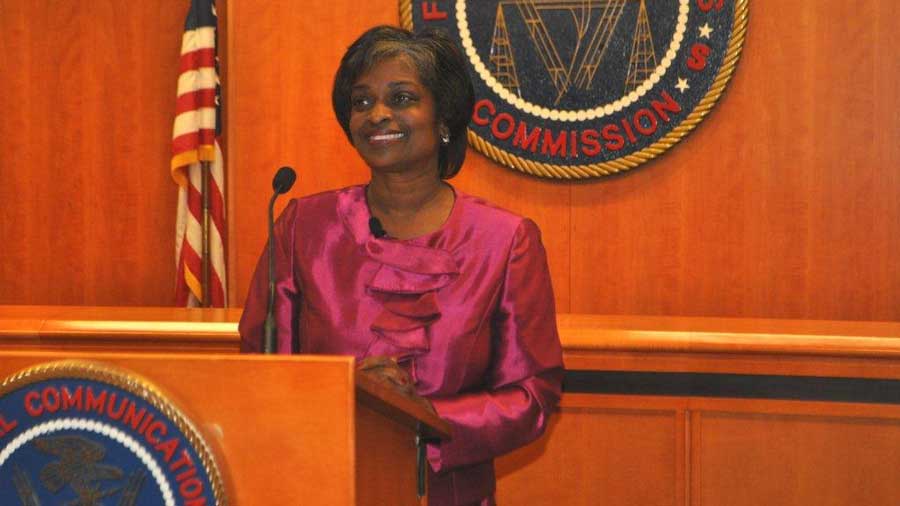Clyburn Pushes Broadband Advisory Committee to Support Muni Buildouts

The smarter way to stay on top of broadcasting and cable industry. Sign up below
You are now subscribed
Your newsletter sign-up was successful
FCC commissioner Mignon Clyburn had a few choice words with the FCC's Broadband Deployment Advisory Committee before its meeting Wednesday (Jan. 24).
Clyburn said she is concerned the committee is too industry-focused when it comes to solutions for closing the digital divide. BDAC's charter is to advise the FCC on how best to accelerate deployment of high-speed broadband access by reducing barriers to infrastructure investment.
Clyburn suggested one barrier is not fully supporting municipal buildouts of high-speed broadband service.
Related: Cities, Counties Seek More Broadband Input at FCC
"While I appreciate the BDAC’s acknowledgement that public-private partnerships may provide solutions to bridge those divides, I noticed that there was an expressed preference for industry over municipalities in broadband deployment efforts," Clyburn said, according to a copy of her prepared remarks obtained by B&C/Multichannel News. "As I have said many times before, one size does not fit all, and private industry infrastructure investments do not always flow to communities that are most in need. Therefore, I continue to ask, for municipalities to be allowed to deploy a broadband network, if that best suits the needs of the people they are elected and appointed to serve."
Related: FCC Commits to Expanded Rural Broadband Deployment
She said she did support inclusion of language in the "Model Codes for States and Municipalities" that BDAC is working on that supports closing the urban/rural digital divide.
Democrats on the Hill as well as at the FCC have been pushing FCC chair Ajit Pai to tap into more state and local government input on broadband deployment, suggesting the FCC’s goal now is to serve industry and tie the hands of those local governments.
BDAC held its first meeting last April, and Clyburn was there then, too, to deliver the message that the committee should put consumers first as it debates tower-citing codes or infrastructure streamlining. That includes making sure low-income residents are not relegated to second-class status and remembering that 'one person's regulatory barrier is another's vital consumer protection.' ”
The committee was created by Pai to come up with strategies for closing the digital divide and advancing his Digital Empowerment Agenda, comprising various stakeholders. Closing the broadband digital divide, particularly in rural areas, has been a key agenda issue for Pai.
The committee is expected to come up with two "model codes," one for cities and the other for states, those codes being guidelines for how to streamline broadband deployment while balancing the interests of government with the demands for better, faster and cheaper broadband.
As currently constituted, more than 75% of the board is made up of representatives from large wireless and cable companies, including AT&T, Comcast and Sprint, according to a report from the Center for Public Integrity.
The smarter way to stay on top of broadcasting and cable industry. Sign up below
Contributing editor John Eggerton has been an editor and/or writer on media regulation, legislation and policy for over four decades, including covering the FCC, FTC, Congress, the major media trade associations, and the federal courts. In addition to Multichannel News and Broadcasting + Cable, his work has appeared in Radio World, TV Technology, TV Fax, This Week in Consumer Electronics, Variety and the Encyclopedia Britannica.

